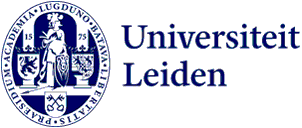
New professor calls for more research with a ‘global lens’
Jan Aart Scholte is the first professor on the new Leiden interdisciplinary programme, Global Transformations and Governance Challenges. He researches how to tackle global challenges such as climate change and inequality. Inaugural lecture on 4 February.
Global problems such as pandemics, migration, financial crises and climate change call for global governance. That may sound obvious. ‘But we often underestimate the global nature of current challenges in society,’ says Jan Aart Scholte, brand-new Professor of Global Transformations and Governance Challenges at Leiden University. ‘More often than not, public discussion of, say, coronavirus or migration policy, focuses on measures within the Netherlands or Europe. The notion of a global strategy takes a back seat.’
‘We often underestimate the global nature of challenges.’
Unknown governance
The new Leiden interdisciplinary programme, Global Transformations and Governance Challenges (GTGC) ), approaches changes in contemporary society from a global perspective. To be precise, the programme researches what kinds of governance can suitably address these challenges. What is the current situation, and how could things be improved? ‘We still know far too little about these complex processes and the parties involved,’ Scholte explains. ‘For example, most people are unaware of the existence of the global and mainly non-governmental organisations that substantially govern the internet, parties such as the Internet Corporation for Assigned Names and Numbers and the Internet Engineering Task Force. All those hours online and we don’t even know who’s governing us there!’
Greater efficacy and legitimacy
There are two broad ways to improve how global challenges are handled, says Scholte. First, the existing instruments and organisations must become more effective, for example through better coordination, stronger mandates, and more resources. Second, global governance needs more legitimacy. People need to know more about, and feel more represented in, global governance. Much still needs to be done in this regard, since Scholte’s research shows that citizens generally only grant limited legitimacy to the current governing bodies. ‘Classic systems of democracy, such as that of a national parliament, do not work at a global level,’ says Scholte. ‘We need new visions that can ensure that global governance gains greater legitimacy.’
‘Leiden has enormous potential for global research’
To achieve this greater efficacy and legitimacy, interdisciplinary research is needed: collaboration between relevant researchers from different university faculties. Over the next years, Scholte seeks to coordinate more interfaculty research ‘with a global lens’ at Leiden University. ‘Leiden has enormous potential in this field, but there is scope for further development of global thinking.’ A good start has been made: 180 researchers from Leiden have affiliated with the GTGC programme and ten seed-grant projects are already underway.
Text: Jan Joost Aten
Image: Wikimedia
